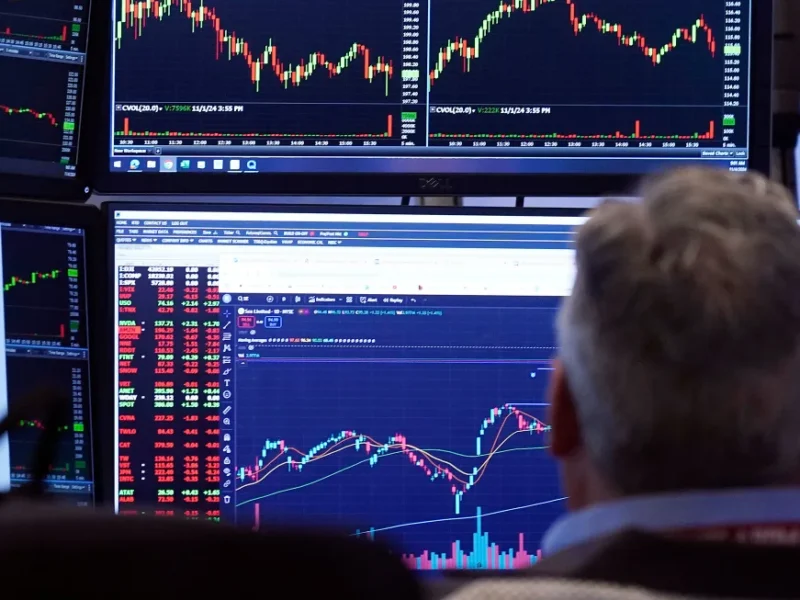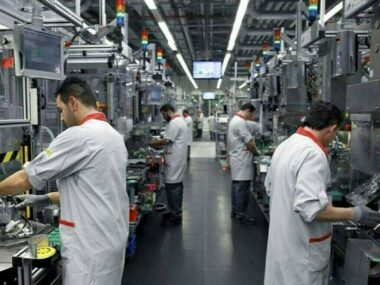U.S. stocks rose on Tuesday as Americans voted in a closely contested presidential race.
The Dow gained approximately 380 points, or 0.9%, while the S&P 500 increased by 1% and the Nasdaq Composite climbed 1.4% by mid-afternoon. Treasury yields also rose, with the 10-year surpassing 4.3%, and the dollar slightly dropped.
It’s a significant week for the markets, with the Federal Reserve set to announce its next interest rate decision two days after Election Day. This will be the first rate decision since the Fed’s previous cut and after recent unemployment data suggested a weakening labor market.
Despite some volatility on Monday, with the market closing lower as traders awaited news, investors seem largely unfazed. Year-to-date market gains through October have been the strongest in any election year since the 1950s, when the S&P 500 was established.
Keith Lerner, chief market strategist at Truist, noted that these gains are backed by a resilient economy and record-high forward earnings.
Stay Composed and Continue Trading.
Keep calm and trade on — that’s the mantra many investors are repeating to themselves through one of the most turbulent news weeks of the year.
October’s jobs numbers disappointed Wall Street, but many investors expect that the setback is temporary and due to extreme weather events like hurricanes Helene and Milton. Plus, economic data shows that Americans are still spending money. The US economy grew more than expected in the third quarter of 2024, and much of that growth came from strong consumer spending, which was at its highest level in over a year.
Lerner expects some trading churn this week but nothing too dramatic. “Elections matter, but other factors tend to matter more for markets in aggregate,” he wrote. “Regardless, our view is investors should continue to focus on the primary trend and try to filter out the short-term noise.”
While Vice President Kamala Harris and former President Donald Trump have divergent economic proposals and visions, economists are urging investors to vote at the polls and not with their portfolios. Congress, meanwhile, could end up again divided, making it difficult for whoever the next president is to implement any significant economic or budget changes.
Regardless, market performance is far more dependent on where we are in the economic cycle when a new president and Congress take office than on any party or candidate, said Brent Schutte, chief investment officer at Northwestern Mutual Wealth Management Company. “That’s because at almost $29 trillion, the US economy is too big and complex to significantly sway from its natural trend rate of growth.”
”It’s best for traders to continue their focus on fundamentals,” said Dave Sekera at Morningstar. “Valuations at the market level and individual stock level are always the key to long-term performance. You may have a lot of noise in the short term, but for long-term investors, it’s always going to be all about valuation,” he said.
The Cost of Engaging in Politics.
An analysis by Danny Noonan at Morningstar Wealth found that investors fare much better in the long term if they avoid making investment decisions based on politics.
For example, if someone had invested $1,000 in the S&P 500 in 1953, bought when a Democrat took office, sold when a Republican became president, and then reinvested when a Democrat returned, they would have $62,000 today. However, if they had only invested during Republican presidencies, their investment would have grown to $27,000.
On the other hand, if they had simply stayed invested in the S&P 500 and ignored political shifts, their $1,000 would have grown to around $1.7 million today.
As Americans vote and Wall Street anticipates the Fed’s decision, markets may experience short-term volatility. However, experienced analysts point out that the U.S. economy’s long-term resilience has consistently outperformed the effects of any single election or administration.
For investors, this suggests the wisest strategy is to remain calm, keep trading, and leave political considerations at the polls.











